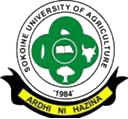The One Health approach is a proactive, collaborative, and trans-disciplinary pathway to health and well-being. The One Health Commission, a 501(c)(3) global non-profit organization based in the U.S., stresses recognition of human, animal, and ecosystems interconnections and facilitates collaboration of all professions required to achieve global and planetary health. The Commission acknowledges that the Social sciences* are essential to understanding and addressing the root causes of disease and determinants of community health. Without an understanding of how sociological, cultural, economic, demographic, historic, linguistic, geographic, political, and other social dimensions contribute to health, society will be limited in achieving it for all. Social science disciplines are critical to making One Health the default way of doing business at all levels of research, academia, policy, and government.
Therefore, a One Health Social Sciences (OH-SS) Working Group has been created that will provide a platform for innovation and integration of all social science disciplines to strengthen the One Health movement. Today this team invites social science researchers and practitioners to share their expertise in utilization of the One Health approach which can facilitate achieving the United Nations Strategic Development Goals of ecosystem sustainability, global food security, and equitable health care.
Interconnections among human, animal, and ecosystem health are evident in back yards, farms, communities and cities around the world. In addition to the many infectious diseases shared by animals and people, some of the most serious public health threats affecting society and driving healthcare costs-including obesity, diabetes, antimicrobial resistance, and cancer-are shared by both animals and people. Respiratory and gastrointestinal ailments are linked directly to the quality of the environment, the health of ecological systems, and the adequacy of animal and plant protein sources. We will never be able to reframe critical attitudes and behaviors without knowledge, leadership and input from the Social Sciences.
“One Health is a very old concept,” says Dr. Cheryl Stroud, Executive Director of the One Health Commission. “But, with ever-increasing technological innovations and fragmentation into distinct disciplines, our interactions, collaborations and ability to keep the big picture in focus have gotten lost along the way. One Health is our ‘ray of hope’ for the future.” To make it the default way of doing business, principles found in business, psychology, anthropology and all social science fields* are needed. Social Scientists can help devise effective educational and policy initiatives to understand and address underlying drivers of behavior that are critical to impact positive change, particularly for the world’s most vulnerable of communities.
The One Health Social Sciences Team invites social scientists of all disciplines to become involved in the One Health community. By forging new and innovative partnerships, collaborations across human, animal, plant and ecosystem health communities will collectively enable betterment of health and well-being for all.
To learn more and get involved please contact the One Health and Social Sciences Working Group at ohss@onehealthcommission.org.
* anthropology, archaeology, architecture, business, economics, entrepreneurship, education, demography/human-medical geography, history, law, linguistics, public health, political science, sociology and others
Contact information:
Cheryl M. Stroud, DVM, PhD, Executive Director, One Health Commission
cstroud@onehealthcommission.org







